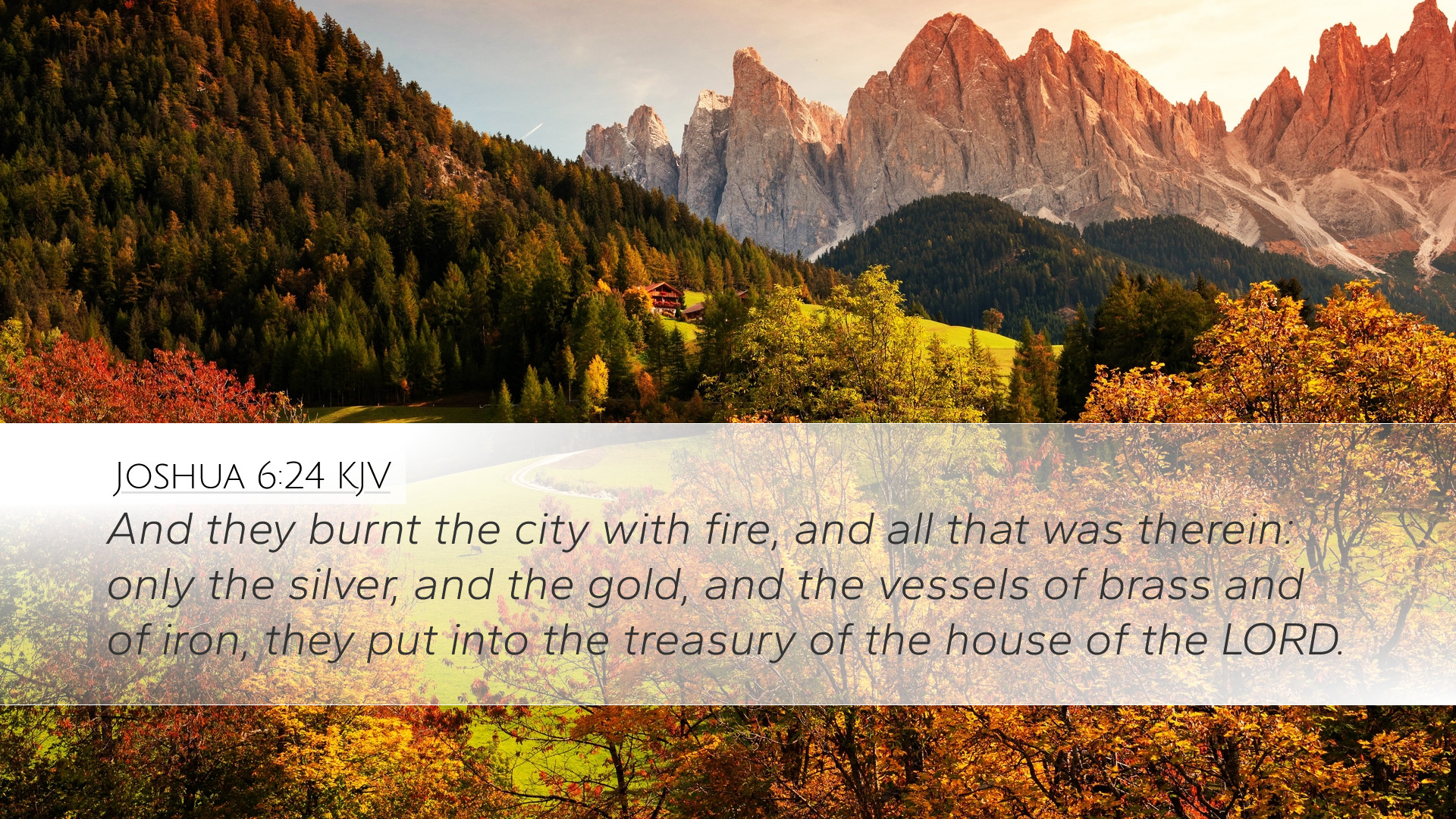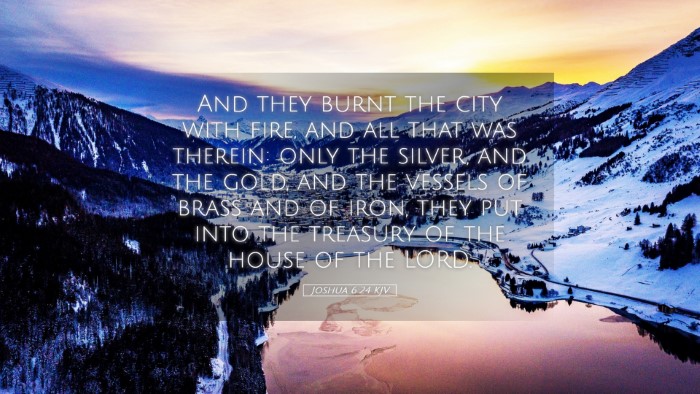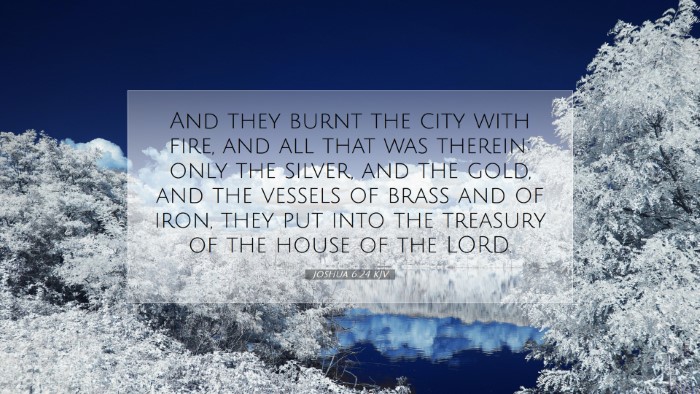Old Testament
Genesis Exodus Leviticus Numbers Deuteronomy Joshua Judges Ruth 1 Samuel 2 Samuel 1 Kings 2 Kings 1 Chronicles 2 Chronicles Ezra Nehemiah Esther Job Psalms Proverbs Ecclesiastes Song of Solomon Isaiah Jeremiah Lamentations Ezekiel Daniel Hosea Joel Amos Obadiah Jonah Micah Nahum Habakkuk Zephaniah Haggai Zechariah MalachiVerse
Joshua 6:1 Joshua 6:2 Joshua 6:3 Joshua 6:4 Joshua 6:5 Joshua 6:6 Joshua 6:7 Joshua 6:8 Joshua 6:9 Joshua 6:10 Joshua 6:11 Joshua 6:12 Joshua 6:13 Joshua 6:14 Joshua 6:15 Joshua 6:16 Joshua 6:17 Joshua 6:18 Joshua 6:19 Joshua 6:20 Joshua 6:21 Joshua 6:22 Joshua 6:23 Joshua 6:24 Joshua 6:25 Joshua 6:26 Joshua 6:27

